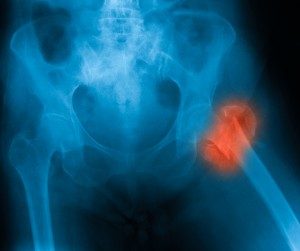 Sunday August 21 is the National Senior Citizens Day. As the date is upon us, we present our top articles discussing the health issues that affect seniors, including osteoporosis, vision problems, Alzheimer’s disease, concussions, and depression.
Sunday August 21 is the National Senior Citizens Day. As the date is upon us, we present our top articles discussing the health issues that affect seniors, including osteoporosis, vision problems, Alzheimer’s disease, concussions, and depression.
In the U.S., National Senior Citizens Day recognizes the contributions of seniors to their communities. The holiday raises awareness on the health, social, and economic issues pertaining to aged seniors and their families.
Osteoporosis risk increases in seniors suffering from hip fracture: New study
Advertisement
Every year, at least 250,000 people are hospitalized for hip fractures, yet many don’t realize the injury is associated with osteoporosis risk.
New research suggests that seven out of 10 older adults who experience hip fractures are not told they could have osteoporosis. Osteoporosis is a condition in which the bones become brittle and fragile from loss of tissue. This can be due to hormonal changes, or deficiency in calcium or vitamin D.
Many geriatric experts say that hip fractures are almost always a sign of weak bones. Officials at Northwell Health in New York State agree. In fact, they conducted a survey of hip fracture patients and discovered a shocking number of people that were not told about the possibility of osteoporosis. Their findings stated that 57 percent of people with hip fracture reported their hospital physicians did not suggest any osteoporosis medication after their fracture. Additionally, 25 percent said they would refuse taking osteoporosis medication. Continue reading…
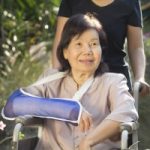 U.S. seniors affected by poor vision and dangerous falls
U.S. seniors affected by poor vision and dangerous falls
Millions of American seniors are affected by poor vision, which contributes to dangerous falls increasing the risk of disability. Nearly 2.8 million seniors are believed to have severe vision impairment and of them 1.3 million experience a fall at least once.
Dr. Robert Glatter, an emergency physician at Lenox Hill Hospital, explained that falls “represent a major source of disability and can lead to prolonged recoveries and lengthy stays in hospitals and long-term care facilities.”
Fractures and wounds in seniors are slower to heal, meaning that falls can be disabling or life-threatening. Having regular vision checks are essential for fall prevention as corrective lenses and other interventions can be implemented in order to reduce the risk of poor vision-related falls. Glatter added, “Monitoring changes in visual acuity is a critical aspect of screening in older persons who live independently, for fall risk – especially if they use canes or walkers.” Continue reading…
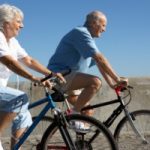 Alzheimer’s disease, dementia risk lower in seniors who exercise which protects brain’s gray matter
Alzheimer’s disease, dementia risk lower in seniors who exercise which protects brain’s gray matter
Alzheimer’s disease and dementia risk are lower in seniors who exercise as physical activity has been shown to protect brain’s gray matter. A new study found that seniors who exercise regularly have larger amounts of gray matter associated with better memory and cognition.
Numerous studies have pointed to the benefits of exercise on the brain. Unfortunately, as many individuals age, they tend to become more sedentary as opposed to staying active. Investigator James T. Becker said, “Our current treatments for dementia are limited in their effectiveness, so developing approaches to prevent or slow these disorders is crucial. Our study is one of the largest to examine the relationship between physical activity and cognitive decline, and the results strongly support the notion that staying active maintains brain health.”
The researchers examined data collected over five years from 876 people over the age of 65. The participants all underwent brain scans and periodic cognitive assessments. The individuals were also asked how often they partook in any physical activity, like walking, playing tennis, swimming, dancing, or taking aerobic classes. The results helped researchers determine weekly calorie expenditure. Continue reading…
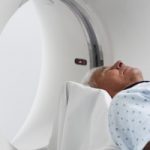 Concussion (traumatic brain injury) increases dementia risk in seniors
Concussion (traumatic brain injury) increases dementia risk in seniors
Concussion (traumatic brain injury) increases the risk of dementia in seniors. Roughly 1.7 million Americans experience a minor concussion annually, and nearly 15 percent of those who experience repeated brain injuries suffer from abnormal brain functioning years later.
A concussion can occur due to a sports injury, car accident, or any other injury that occurs to the head.
It’s been found that adults in their mid-50s who experience a traumatic brain injury (TBI) like concussion have a higher risk of developing dementia. First author Raquel C. Gardner said, “I hope that these results will highlight the critical importance of preventing falls in older adults. Fall prevention will not only prevent bodily injury, but may even help prevent dementia.”
Over 66 percent of hospital admittance for traumatic brain injuries is for those over the age of 55. The highest rate of patients with traumatic brain injuries are those over the age of 75.
There are minimal studies that reveal the link between traumatic brain injuries and the risk of dementia, which have yielded conflicting results. The study conducted by Dr. Gardner and colleagues examined this associated risk by including non-TBI trauma (NTT) patients as controls. Continue reading…
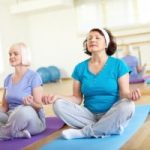 Yoga may help combat depression, PTSD, and anxiety in seniors
Yoga may help combat depression, PTSD, and anxiety in seniors
Yoga may help combat depression, post-traumatic stress disorder (PTSD), and anxiety in seniors. Yoga continues to grow in popularity and for good reason, too. Yoga has been found to provide multiple benefits such as improving flexibility and strength along with reducing stress and anxiety.
Advertisement
For the study, researchers analyzed 13 literature reviews accounting for 185 articles. The researchers found that yoga has the potential to offer benefits to those suffering from PTSD, anxiety, and depression.
Coauthor Leslie Roach said, “Even though I do think yoga is, in general, incredibly beneficial, I also think there needs to be a whole lot more education about how to use yoga specifically to treat survivors of trauma in order to be the most effective and helpful. So as a standalone treatment right now, it’s just not viable. However, I think with more education, more research, and more experienced instructors, it will be.”
Researcher Rebecca Macy concluded, “One of our recommendations was that researchers and yoga instructors partner together so that we use holistic methods in future research. We need to ask ourselves if we’re taking these Western research methods and trying too hard to fit a round peg in a square hole. As a researcher, I don’t want to undo the potential benefits of yoga by making the practice unnecessarily standard and systematic.” Continue reading…
